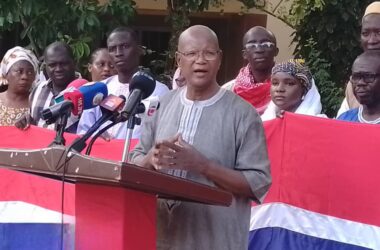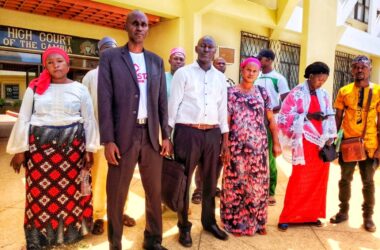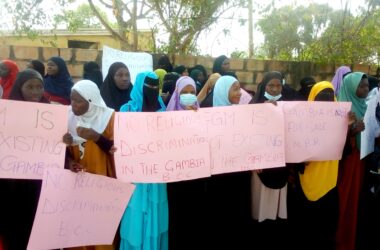 (JollofNews) – Tourism is one of the largest and fastest growing economic sectors in the world. Many national and regional economies heavily depend on tourism for socio-economic growth and development.
(JollofNews) – Tourism is one of the largest and fastest growing economic sectors in the world. Many national and regional economies heavily depend on tourism for socio-economic growth and development.
The Gambia falls into this category. The economy of the Gambia is based on industries such as agriculture, tourism and fisheries. The relevance of tourism for the Gambia is reflected on the 2015 World Travel and Tourism Council Economic Impact Report, which stated that the total contribution of Travel and Tourism to Gross Domestic Product (GDP) was D5,016.2 million (13.8 per cent of GDP) in 2014, and is forecast to rise by 15.8 per cent in 2015, and to rise by 7.2 per cent per annum to D11,605.7 million (17.6 per cent of GDP) in 2025.
Tourism has significant economic benefits on the development of the Gambia. It is crucial to the macro-economic growth of the country. The tourism industry generates about 20 per cent of all private sector formal jobs in the Gambia.
Tourism generates income for the government of the Gambia through taxes from businesses in the industry particularly the hotels. A hotel survey carried out by Mitchell and Faal (2007) estimates hotel generated income from tourism at a gross annual surplus of about £10.8m or D600 million.
The Gambian Poverty Reduction Strategy Paper (PRSP) identified the tourism industry as an important sector for development particularly as a source of foreign exchange earnings; inward investment in tourism was identified as a potential significant contributor to employment in the recent PRSP by the World Bank.

A survey carried out by Adama Bah and Harold Goodwin shows that the informal sector (not directly linked to tourism) benefited from about one-third of total tourist expenditure in the Gambia.
The fruit sellers estimate that their incomes have increased by 50-60 per cent as a result of tourism. The survey also stated that, the average tourist in the Gambia was taking home £23.14 as surplus from their holidays. An estimated 30 per cent of holiday makers spend all their money before leaving the Gambia. So the evidence suggests that there are positive benefits of tourism to the socio-economic development of the Gambia.
The result of this could be more job creation for the people of the Gambia. Statistics from the World Travel and Tourism Council reported that, in 2014 Travel and Tourism directly supported 29,000 jobs (4.2 per cent of total employment). This is expected to rise by 16.6 per cent in 2015 and rise by 4.5 per cent pa to 52,000 jobs (5.3 per cent of total employment) in 2025. These figures demonstrate how important the tourism industry is in contributing to the socio-economic development of The Gambia.
The socio-economic benefit tourism brings to the local communities in the Gambia is a testimony of its crucial role in aiding development. An example of how tourism has helped in the development of local communities is the Sandele Responsible Tourism Project in Kartong village, Kombo South. Under this project, the owners of Sandele Eco Resort (Gamspirit) signed a Memorandum of Understanding (MOU) where,
• The Sandele Developments are on land owned by the people of Kartong
• At the end of a 25 year period, the land and resort will revert to the village
• At least 70 per cent of all Gamspirit employees will be from the community
• Finally, a portion of the profits will be donated to the village development projects.
The training and employing of local staff and using local materials wherever possible demonstrate a desire to promote development within the rural Gambia and spread tourism benefits across the country.
Recommendations On How The Gambia Tourism Industry Can Improve
The government, Ministry of tourism and other authorities managing and regulating tourism in the Gambia should utilise the following recommendations:
Firstly, if tourism is to contribute to sustainable local community development, it is crucial to come up with tourism development strategies centred mainly on; increasing employment opportunities for locals and one of the main ways to do this is by increasing informal sector opportunities. Furthermore, improving social and cultural impacts and increasing participation of local people in decision-making is crucial for sustainability.
Secondly, there is need for more Gambian entrepreneurs to be involved in the provision of tourism products and services. This is important as it will not only generate income for them but it will help minimise leakages. However, the local people currently do not have the adequate training, education and qualifications to face up to this challenge. Given this situation, the government, Non-Governmental Organisations and other institutions such as the university, Institute of Travel and Tourism of the Gambia (ITTOG) and the Hotel School could perform a leading role in the training of local residents.
Since the issues of hassling “Bumsters” is a major concern, the government should work in collaboration with other private and public sector stakeholders to tackle this problem. One way of doing this could be through educating people starting at the grassroots level by embedding tourism education at national curriculums. Hence children at a young age will learn about the impacts of tourism and understand how to relate with the tourists responsibly without hassling them.















